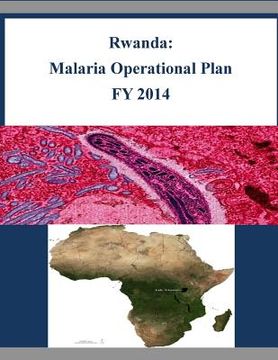Synopsis "Rwanda: Malaria Operational Plan FY 2014 (in English)"
Malaria prevention and control is a major foreign assistance objective of the U.S. Government (USG). In May 2009, President Barack Obama announced the Global Health Initiative (GHI), a multi-year, comprehensive effort to reduce the burden of disease and promote healthy communities and families around the world. Through GHI, the United States will help partner countries improve health outcomes, with a particular focus on improving the health of women, newborns, and children. Rwanda has been selected as a GHI Plus country. The President's Malaria Initiative (PMI) is a core component of the GHI. PMI was launched in June 2005 as a 5-year, $1.2 billion initiative to rapidly scale up malaria prevention and treatment interventions and reduce malaria-related mortality by 50% in 15 high-burden countries in sub-Saharan Africa. With passage of the 2008 Lantos-Hyde Act, funding for PMI was extended through FY 2014. Programming of PMI activities follow the core principles of GHI: encouraging country ownership and investing in country-led plans and health systems; increasing impact and efficiency through strategic coordination and programmatic integration; strengthening and leveraging key partnerships, multilateral organizations, and private contributions; implementing a woman- and girl-centered approach; improving monitoring and evaluation; and promoting research and innovation. Rwanda officially became a PMI country in FY 2007, although the USG had been supporting malaria control activities for several years before that. Rwanda has scaled up malaria control interventions successfully and has set the ambitious goal of achieving pre-elimination status by 2017. In early 2011, Rwanda was one of the first countries in sub-Saharan Africa to achieve universal long-lasting insecticidal net (LLIN) coverage with the distribution of over 6.1 million LLINs. Rwanda is implementing a universal coverage campaign in 2013 with another national distribution of approximately 6 million LLINs. Rwanda's indoor residual spraying (IRS) has targeted high-burden districts and sectors, based on available evidence. Rwanda has conducted nine IRS rounds to date and has withdrawn IRS operations in certain districts due to reduction in malaria incidence, transmission, and funding. Rwanda currently sprays two rounds annually in three high malaria burden districts that border malaria-endemic neighbors. In 2013, Rwanda developed and is implementing an insecticide resistance management (IRM) plan that builds upon their Integrated Vector Management (IVM) strategy. Rwanda will change the insecticide class it uses in IRS in a phased transition and continue to switch classes every two years based on evidence of insecticide resistance and World Health Organization (WHO) guidance. Progress in case management is equally impressive with great strides in diagnosis and treatment at all levels of the health care system and nationwide integrated community case management. In late 2009, the MOH, through its Malaria and Other Parasitic Diseases Division (termed in this MOP the National Malaria Control Program, or NMCP) directed that all presumed malaria cases be laboratory confirmed. In 2012, HMIS reports indicate that 99% of all patient-diagnosed malaria cases are confirmed by microscopy or rapid diagnostic tests before receiving ACTs. Community health workers (CHWs) continue to play a pivotal role in malaria case management and 30,000 of Rwanda's extensive network of 60,000 CHWs are mobilized to implement integrated community case management (iCCM), diagnosing and treating malaria, diarrhea, and pneumonia.

